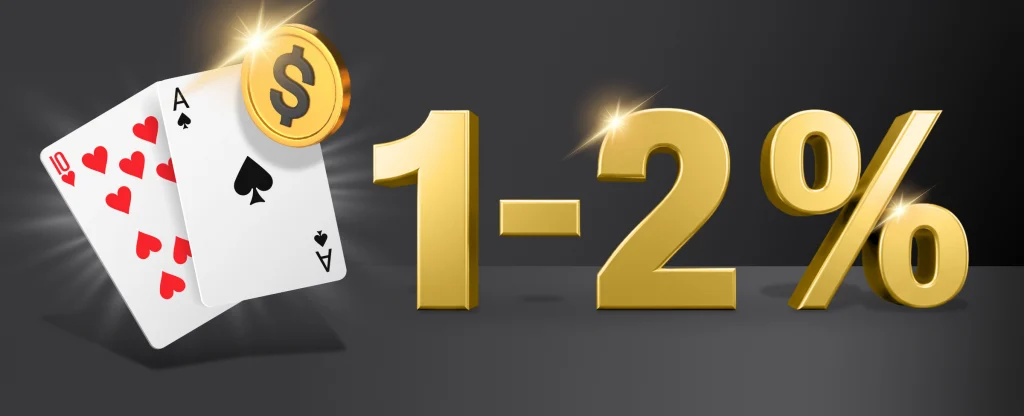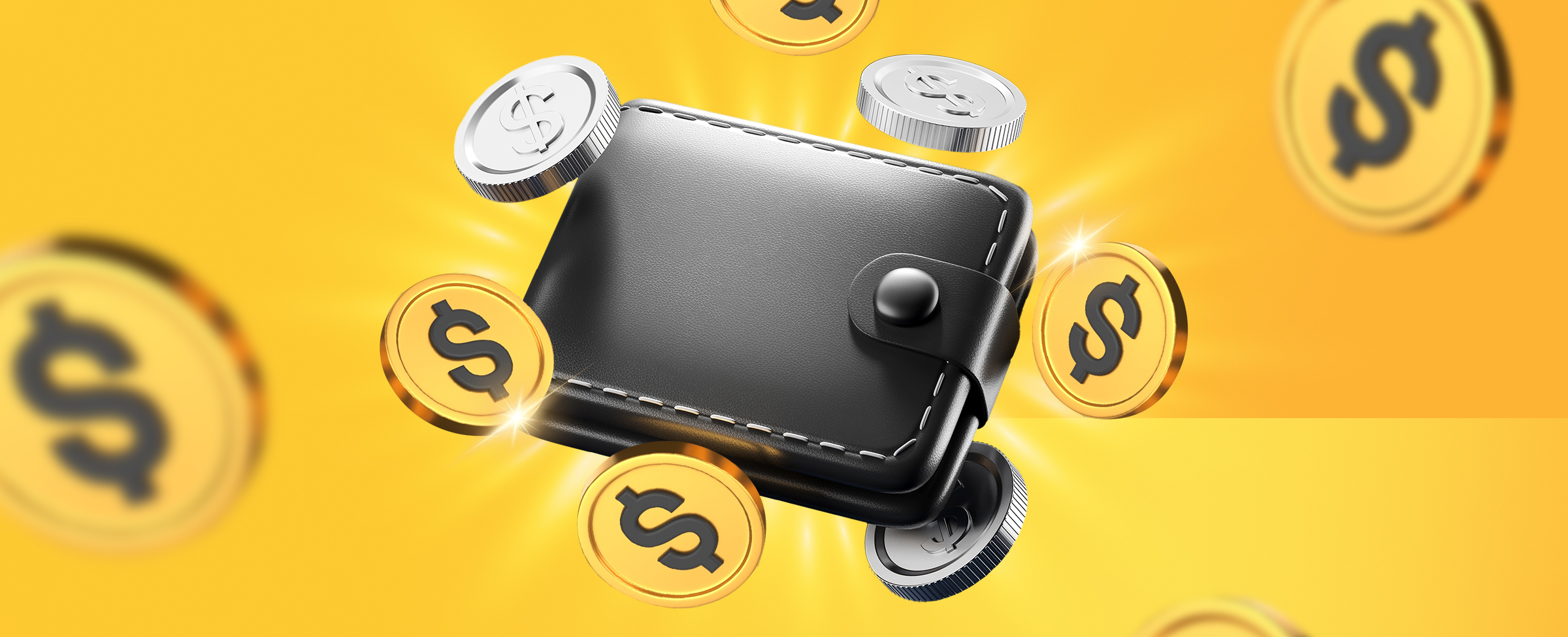A Beginner’s Guide to Smart Gambling
Here at Joe Fortune we are here to help provide you with an enjoyable online gambling experience. So, whether you’re keen to dive into the world of casinos, online pokies, blackjack, or a just cheeky punt on the roulette wheel, understanding bankroll management is your first step to playing smarter and staying in control. Let’s break it down with this beginner’s guide to smart and fun gambling.
What is Bankroll Management?
Bankroll management is all about how you handle the money you’ve set aside just for having a punt aka your gambling funds. It’s not about chasing wins or going all-in on a hunch, it’s about setting clear limits, playing within them, and making sure you don’t blow your entire stash in one wild session. Think of it like budgeting for a big night out. You decide what you’re comfortable spending, take that with you, and once it’s gone, that’s your cue to call it a day.
Having a plan means you’ll enjoy the fun without the stress. It helps you avoid making emotional bets or chasing losses when things don’t go your way. Whether you’re spinning the reels on pokies, taking on the blackjack table, or giving roulette a whirl, sticking to a set bankroll keeps your play steady and your experience more enjoyable. It also means you can play longer and get more value out of your money. At the end of the day, gambling should be a bit of entertainment and certainly not a financial strain. Proper bankroll management helps you stay in control and keep the good times rolling without regret.
Popular Bankroll Management Systems
There are a few systems players can use to manage bankrolls, starting with the easier one, Flat Betting. Here you bet the same amount each time. It’s simple and keeps things steady. Next up is Unit Betting. Here you decide on a unit size, say $5 and then simply bet in multiples of that unit. The final one to consider is Percentage Betting. Here you wager a set percentage of your bankroll for example, 5% per bet. Each has its pros and cons but choose one that suits your style and stick with it.
Set a Budget
Before you even think about putting money into your account or placing a bet, you should set a budget. Decide how much you’re willing to spend in the session or day and then don’t go over it. This is your gambling fund, and once it’s gone, that’s it. You should not go dipping into savings or use your credit card. Remember, it’s all about having some fun, not creating your own GFC.
Stick to Your Limits
It can be easy to get carried away when you’re on a superb winning streak or even if you go chasing losses. But sticking to your limits is crucial. If you’ve set a daily or session limit, respect it. Walk away when you hit it and take a break, remember there’s always another day to try your luck.
Keep Track of Results

Keep a record of your wins and losses. It doesn’t need to be anything too formal, perhaps just a notepad with a daily total of what you bet and what you got back. This helps you understand your betting patterns and adjust accordingly. It also gives you a reality check so you can see are you ahead, or just kidding yourself?
Make Use of Casino Bonuses
Online casinos like Joe Fortune offer welcome bonuses as well as other offers like free spins, match deposits, or loyalty points. These can give you more playtime without dipping into your bankroll. Make sure you always read the T&Cs but be sure to check out how much extra value you can get.
What is the House Edge?
The house edge is the built-in advantage that the casino has over players in any game. It’s how casinos make money in the long run. Every game is designed so the odds slightly favour the house not necessarily by a lot, but just enough to ensure they stay in profit over time.
Let’s say a game has a house edge of 5 percent. That means, on average, for every 100 bucks you bet, the casino expects to keep 5. You might win or lose in the short term, but over hundreds or thousands or millions of bets, the house edge adds up.
Understanding the house edge helps you make smarter choices about which games to play and how much to bet. It doesn’t mean you can’t win but it does mean the odds are always slightly tipped in the casino’s favour.
Understand House Edge Differences Between Games
Different games have different house edges. For example, blackjack, when played with basic strategy, can have a house edge as low as 0.5 percent. Roulette sits around 2.7 percent for European rules. Pokies (or slots) often have higher house edges, sometimes 5 to 10 percent or more. The lower the house edge, the better your chances of walking away with something.
Video Poker Bankroll Management
Video poker is a great game for those who like a bit of strategy. To better manage your bankroll here you should, stick to games with a high return-to-player (RTP) percentage. Play max coins to try to qualify for any jackpot. Make sure you set win and loss limits for each session.
Blackjack Bankroll Management

Blackjack is all about patience, skill and strategy. To manage your bankroll here we suggest betting 1-2% of your total bankroll per hand. Use some basic strategy charts to make optimal decisions. Finally consider whether you want to play side bets, as they often have a higher house edge.
Craps Bankroll Management
Craps can be fast-paced and exciting. Bankroll management here is tough but we recommend that you stick to pass/don’t pass and come/don’t come bets as they have a lower house edge. As always set a session limit and quit if you reach it. Also avoid proposition bets as these again have a higher house edge.
Roulette Bankroll Management
Roulette is a game of chance with no previous outcomes impacting what is going to land next. With that in mind and to manage your bankroll bet on outside bets like red/black or odd/even as they have nearly 50/50 odds. Be sure to set a win and loss limit for each session. Whilst it can be fun avoid betting systems like Martingale as these can be rewarding but can also deplete your bankroll very quickly.
Baccarat Bankroll Management
Baccarat is straightforward and fast. To manage your bankroll here you should bet on the banker simply because it has a lower house edge. Then also set yourself a session limit and stick to it. Be sure to avoid tie bets as they have a higher house edge.
Pokies Bankroll Management
Pokies are as much fun online as they are in pubs and clubs, but they can be volatile. To manage your bankroll and budget here you should choose games with a high RTP percentage. All of which you should be able to find in the rules of the pokie or slot. As always, set a loss limit and stick to it. When it comes to pokies, be sure to play within your means as it is very easy to start chasing losses.
How Much of Your Bankroll Should You Play With?
A good rule of thumb when it comes to bankroll management is to only bet around 5 to 10 percent of your total bankroll per session. This helps you stretch out your playtime and gives you a better chance of riding out any rough patches or losing streaks. The idea is to stay in the game longer without putting all your funds on the line at once.
For example, if you’ve set aside $200 as your total bankroll, you’d be looking to bet somewhere between $10 and $20 for that session. It’s not about going all-in and hoping for the best — it’s about pacing yourself and playing smart. This percentage approach gives you room to enjoy multiple rounds, switch games if you like, and avoid burning through your budget too quickly.
Of course, you should always adjust based on your comfort level, how fast the game moves, and how much risk you’re willing to take. Slower games might let you get away with a bit more, while faster games like slots might call for a more cautious approach. Either way, playing within this range helps keep your gambling fun and manageable.
Final Thoughts
Bankroll management isn’t about winning every time; it’s about playing smarter and enjoying the experience without the stress. As a reminder… Play responsibly, set your limits, stick to them, and remember it’s all about having some fun. If you ever feel like it’s becoming more than that, take a step back, take and break and reassess.
